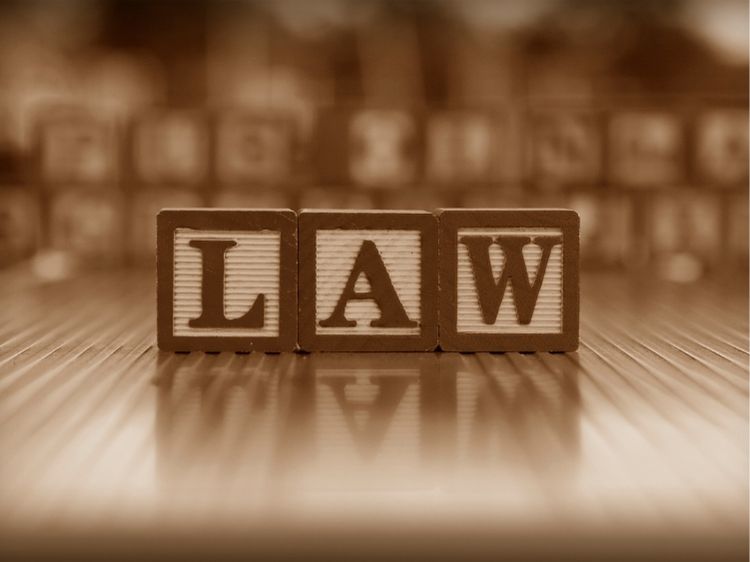When Workplaces Become Danger Zones
Industrial work environments can be risky—no doubt about it. From heavy machinery to hazardous chemicals, employees face dangers daily. Accidents happen, and when they do, the consequences can be devastating—both physically and financially. That’s where an industrial accidents lawyer steps in, helping injured workers navigate complex legal battles and secure the compensation they deserve.
In this guide, we’ll explore the role of these legal professionals, when to seek one out, and why hiring an expert is critical after a workplace accident. Ready? Let’s dive in!
What Is an Industrial Accidents Lawyer?
An industrial accidents lawyer specializes in cases involving workplace injuries in industrial settings. Think factories, construction sites, warehouses, or manufacturing plants—basically, anywhere physical labor meets potential hazards.
What Do They Do?
These lawyers provide legal support by:
- Investigating the accident.
- Determining liability (Was it the employer? A third party?).
- Filing workers’ compensation claims or personal injury lawsuits.
- Negotiating settlements or fighting for compensation in court.
Top Causes of Industrial Accidents
Industrial accidents often stem from:
- Unsafe Working Conditions
Poorly maintained equipment, lack of safety protocols, or inadequate training can lead to injuries. - Human Error
Mistakes, often due to exhaustion or lack of training, can trigger accidents. - Defective Equipment
Faulty machinery or tools can malfunction, causing severe harm. - Exposure to Hazardous Substances
Industrial environments often involve toxic chemicals, fumes, or substances that pose health risks. - Employer Negligence
When employers cut corners or ignore safety regulations, workers are left vulnerable.
Signs You Should Hire an Industrial Accidents Lawyer
Wondering if it’s time to bring in the big guns? Here’s when hiring an industrial accidents lawyer makes sense:
1. The Employer Denies Liability
If your employer refuses to accept responsibility, it’s time to lawyer up.
2. Your Workers’ Compensation Claim Is Denied
Insurers might argue your injury isn’t work-related or serious enough—don’t fall for it!
3. A Third Party Is Involved
If equipment manufacturers, contractors, or other entities share fault, a lawyer will help identify all liable parties.
4. Long-Term or Permanent Injuries
Severe injuries may require lifetime care. An attorney ensures you’re compensated fairly.
How an Industrial Accidents Lawyer Can Help
Hiring an expert attorney isn’t just about paperwork—it’s about protecting your rights and future. Here’s how they assist:
1. Determining Liability
Industrial accidents can involve multiple parties. A skilled lawyer identifies who’s legally responsible for your injury.
2. Negotiating Settlements
Insurance companies love lowball offers. Your lawyer will push for the maximum compensation.
3. Representing You in Court
If negotiations fail, your lawyer won’t hesitate to take the case to trial.
4. Handling Complex Legalities
Let’s be real—legal jargon is a headache. A lawyer translates the fine print into actionable steps.
Common Challenges in Industrial Accident Cases
Every legal case has its hurdles, and industrial accidents are no exception. Here’s what you might encounter:
1. Proving Negligence
Employers and insurers often shift blame. Your lawyer will gather evidence, from accident reports to witness statements, to build your case.
2. Dealing with Insurance Companies
Insurers prioritize profits, not people. They’ll use tactics to undervalue or deny claims, which is why legal representation is key.
3. Long Legal Processes
Industrial accident cases can drag on. A lawyer ensures timely filing and keeps the process moving.
Key Questions to Ask Before Hiring an Industrial Accidents Lawyer
Choosing the right attorney is crucial. Ask these questions to ensure they’re the right fit:
- Do you specialize in industrial accident cases?
- What’s your success rate with similar claims?
- How will you communicate updates about my case?
- What are your fees, and do you work on a contingency basis?
- Can you provide references or testimonials?
Steps to Take After an Industrial Accident
Taking the right steps after an accident can make or break your case. Here’s what you should do:
- Seek Medical Attention
Your health is priority #1. Visit a doctor immediately—even if the injury seems minor. - Report the Incident
Notify your employer and file an official report. Keep a copy for your records. - Document Everything
Take photos of the accident scene, your injuries, and any equipment involved. Collect witness contact information, too. - Avoid Speaking to Insurers Without Legal Advice
Insurance adjusters may twist your words—consult a lawyer first. - Hire an Industrial Accidents Lawyer
The sooner you get professional help, the stronger your case.
FAQs About Industrial Accidents Lawyers
1. What does an industrial accidents lawyer cost?
Most work on a contingency basis, meaning they get paid only if you win. Typically, fees range from 25-40% of your settlement.
2. How long does it take to resolve an industrial accident case?
It varies. Simple cases might settle in months, while complex ones could take years.
3. Can I sue my employer?
In most cases, workers’ compensation laws prevent suing your employer directly. However, you can sue third parties if they’re at fault.
4. What if I’m partially at fault?
In some states, partial fault reduces your compensation. Your lawyer will clarify how this applies to your case.
Conclusion: Don’t Face the Fight Alone
Industrial accidents can leave you reeling—physically, emotionally, and financially. But you don’t have to tackle this alone. An experienced industrial accidents lawyer will guide you through the legal maze, fighting to secure the compensation you deserve.
Remember, the clock is ticking—don’t wait to get the legal help you need. By acting fast, you’re one step closer to reclaiming your life after a workplace accident.
Authoritative Links
- Occupational Safety and Health Administration (OSHA): www.osha.gov
- National Safety Council (NSC): www.nsc.org
- American Bar Association (ABA): www.americanbar.org




